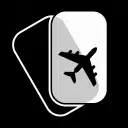The Downside of Fractional Ownership
Have you wondered if fractional aircraft ownership is right for you? Or would on-demand jet charter or other arrangements “even the purchase of your own aircraft” be a better choice? There are a number of criteria that you should look at before making your decision. There is an old maxim that says if you fly between 50 and 400 hours per year, fractional ownership is the best way to go. As with most rules of thumb, there is some truth to this, but your analysis should go much deeper. Your overall usage is still of course a primary determinant. And if you fly less than 50 hours per year, the benefits of fractional ownership over jet charter will most likely be outweighed by the size and variability of the costs and the long term commitment required. If you fly more than 400 hours per year, purchasing your own jet becomes more attractive. Don’t assume that if you’re flying between 50 hours and 400 hours per year that fractional ownership is your best option, however. There are a number of instances where this is not the case. Here are some of those factors:
SHORT FLIGHTS
If your flying requires lots of short hops, let’s say 30 minute flights, you’ll lose almost half your flight hours right off the bat. This is because under standard operating procedures, each fractional flight is charged at a minimum of one hour, so your 50 hour investment may provide you only 25 hours of actual flight time.
PEAK TRAVEL
If you plan to fly primarily on high usage or “peak” travel days, such as dates around New Years, the Super Bowl, Easter, Thanksgiving, etc., your fractional provider may not guarantee to fly you within the normal call-in time, or guarantee to upgrade or downgrade you to a particular aircraft that best suits your needs. On the contrary, if you know well in advance when you’re going to fly on non-peak travel days, the guaranteed call-in time is of little benefit to you. The provider must still factor the cost of maintaining that capability into its operational model, however. In this case you’re paying for a feature that you aren’t actually using.
REPOSITIONING PLANES
With fractional ownership, one touted advantage is not paying directly for repositioning aircraft to service your flights. However if your home or business is located in or near a big city or a popular destination, more than likely you’re well-served by a large charter fleet already, negating the need to have aircraft repositioned in the first place.
EMPTY LEGS
If your flights are short, deadheading flights by charter operators (that return the aircraft to its home base) will be relatively inexpensive, again limiting the fractional benefit of not paying directly for deadheading. Indeed, if you fly a lot of same-day round trips, you may avoid deadheading charges altogether on jet charter flights.
LONG TERM COMMITMENT
Fractional ownership requires a long-term commitment to your usage levels. Most agreements are for five years in duration, with very costly fees associated with early termination. If your business needs change, if you move, or any number of other potential situations arise over that five year period that will change your travel preferences, your fractional ownership remains in place – even if charter flying would be the much better choice. You can end up paying for a lot of flight time that you won’t use or paying significant fees to terminate your fractional agreement.
LIMITED AIRCRAFT CHOICES
Many fractional providers have limited the number of aircraft they hold in their fleets to minimize their costs. If the aircraft they offer don’t truly suit your needs, fractional ownership may not be right for you. Too few fractional owners focus their attention on whether they are well-served by the capabilities of their aircraft. While you may focus on seating capacity, you should also consider range, speed, fuel usage, luggage capacity, Wi-Fi capability and more. If your fractional aircraft can’t make your favorite or most frequent trips without a fuel stop, if it won’t hold all of your luggage for that skiing or golfing vacation, or if it can’t land or take off from the closest airports, you’re probably not going to be very happy with your investment. Even if the provider has the perfect aircraft for your needs, there may be so few in the fleet that much of your time is spent on different aircraft anyway, causing these same problems to arise.
NO COST CERTAINTY
If you require cost certainty, fractional ownership may not be the way to go. Unlike jet charter, with fractional you bear the risk that the value of your aircraft (and thus your share) may change significantly over time, so that it’s impossible to project with any certainty what your actual cost will be over the life of your investment.
OPPORTUNITY COSTS
As with any expenditure, there is an opportunity cost associated with the purchase of a fractional share. The capital outlay required can be significant, and the resources spent here cannot be spent elsewhere in the business. When comparing the cost of various options, you should consider the opportunity cost of committing to such a capital investment.
FINANCIAL DISCLOSURE
When a fractional share is purchased through a business, most likely it will have to be disclosed on your books as a financial asset. This can be a touchy subject for shareholders, especially during tougher economic times. Charter flights on the other hand can be reflected as part of your company’s overall travel expenditures.
JET CHARTER AS A SOLUTION
The goal of any private air travel investment should be to purchase maximum flight time on appropriate aircraft with a reputable and safe operator at minimum cost. Making the wrong choice can cost you hundreds of thousands of dollars in unnecessary expense. This doesn’t mean that a fractional share can’t be a wise investment, just that there’s a lot more to consider than just the number of hours you fly each year. High-level executives and other private individuals use private aviation because it saves time and money. You won’t find any contracts or indifferent treatment when you are a client of Stratos Jet Charters. We offer the flexibility of ‘on-demand’ service with no monthly maintenance or long-term commitment fees, plus a personal concierge service that is unmatched by the competition. We know that businesses needs private aviation to thrive, and because of this many CEOs and other executives spend a lot of hours in the air, so we strive to give them a travel experience that offers the whole package. Focus on business during your next trip – as you experience the safety, flexibility, superior client service and personal concierge options that we offer you at Stratos Jets – and allow us to manage all the details of your flight. Call us to speak with one of our experienced client service agents to provide you with a quote for your next trip, and see the Stratos Jets difference for yourself.
Are you ready to book your San Francisco and Lake Tahoe charter flight yet?
Our friendly, expert air charter agents are here to answer questions or start your quote today. Don`t wait, call now and we'll get you on your way to your destination!
Call 888-593-9066










